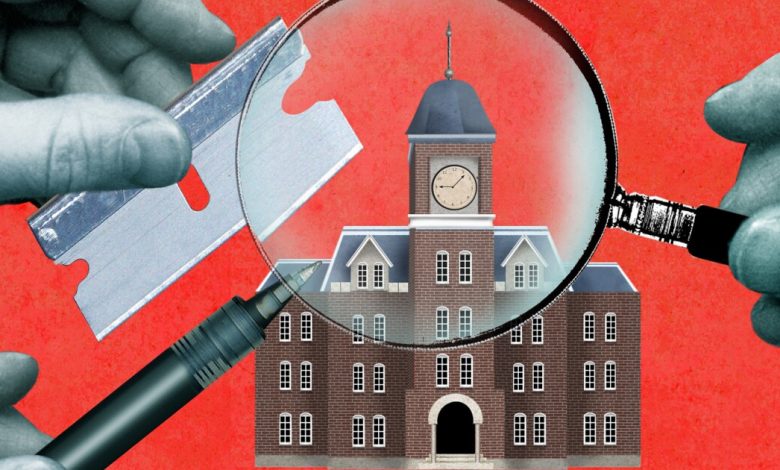Florida Bill Would Require Colleges to Change Accreditors

A bill being considered by the Florida Legislature would require all of the state’s public colleges and universities to change accreditors within the next decade.
This bill seems to say, ‘We don’t really care about what you’ve agreed to comply with.’
In theory, that’s possible, thanks to
new rules
approved under then-Education Secretary Betsy DeVos that make it easier for some colleges to seek a new accrediting agency.
In practice, though, requiring colleges to change accreditors would create an enormous bureaucratic burden for the colleges, take up to two years of staff time, and cost more than $10,000 per institution.
At the end of the process, an accreditor could simply say no to the application, leaving the institution with its existing accreditor. Accreditation by a federally recognized group is required for colleges to receive federal student-loan and Pell Grant monies from students.
“They can’t just automatically go to another accreditor. It’s not like just going from Kroger’s to Publix when you can’t find something you want,” said Belle S. Wheelan, president of the Southern Association of Colleges and Schools’ Commission on Colleges.
They can’t just automatically go to another accreditor. It’s not like just going from Kroger’s to Publix when you can’t find something you want.
More than 100 campuses in Florida are accredited by the Southern Association, including the 12 public universities and 28 state colleges, along with dozens of private colleges. But the association and Wheelan herself have come under scrutiny from some state lawmakers and members of the Florida Board of Governors because of the association’s recent inquiries about political interference and conflicts of interest at the state’s two best-known universities.
In November, the accreditor sent a letter to the University of Florida asking it to respond to reports that it had prevented several faculty members from serving as expert witnesses in a voting-rights trial. If those allegations were true, the conduct could violate the accreditor’s standards for academic freedom and rules against undue political influence.
In May, the accreditor sent a letter to the Board of Governors, which oversees the public university system, raising questions about the search for a new president at Florida State University. At the time, Richard Corcoran, Florida’s education commissioner, was a candidate for that position but also a member of the board, which could violate the association’s conflict-of-interest rules.
The board did not respond to a request for comment. Marshall M. Criser III, chancellor of the state’s university system,, and Alan Levine a member of the Board of Governors, told the Tampa Bay Times they supported the bill — particularly a portion that would allow colleges to sue an accreditor if the institution is “negatively impacted by retaliatory action.”
“It’s a very imprecise piece of legislation, to say the least,” said Scott Schneider, a higher-education lawyer with the firm Husch Blackwell. The terms “negatively impacted” and “retaliatory action” are undefined in the bill, he said, and make it unclear what would be included.
Colleges that are accredited by an organization are dues-paying members, he said, who agree to abide by the standards and policies of the accreditor.
“This bill seems to say, ‘We don’t really care about what you’ve agreed to comply with,’” Schneider said.
Limited Options
What members of the board and lawmakers may not realize is that colleges’ options for accrediting agencies are actually quite limited.
SACS, as Southern Association is commonly called, is one of seven accrediting agencies that used to be referred to as “regional” agencies, meaning their members were restricted to a particular geographic area. The Education Department did away with those boundaries in 2019. The change means that such accreditors can now accept members from any state, if they choose.
But there isn’t much of an open market for accreditation, particularly for doctorate-granting research universities. While the federal government recognizes more than 60 accreditors, the majority are approved to accredit only particular academic programs, such as nursing.
Less than half are approved to accredit whole institutions. Among the smaller group, many are qualified to accredit only career colleges that offer associate degrees or work-force certificates. Other accreditors are limited to seminaries or faith-based colleges. Some agencies can oversee colleges only within a particular state.
In short, Florida’s public universities and state colleges would have to apply to another former regional accreditor, which have similar standards and procedures.
“Accreditors are responsible for inquiring into developments and actions that relate to the standards that agencies are obligated to uphold,” said Jamienne S. Studley, president of the Western Senior College and University Commission, another former regional accreditor.
The Western association is open to accepting applications from outside its region, Studley said, and there may be good reasons for some institutions to move. But “a state legislative mandate for musical chairs would not contribute to the quality and effectiveness of Florida universities,” she said.
In applying to those accreditors, the college would have to pay an application fee — it costs $10,000 to apply to SACS, for example — and then pay for a team of several academics who assess the institution.
College staff, too, would have to prepare a self-study of hundreds of pages detailing how the institution meets the accreditor’s standards, with examples of how they measure student learning and develop their curriculum, among other things.
Other accreditors, too, might not be willing to accept Florida’s colleges as members because of this bill and the potential for more political meddling, said Neal Hutchens, a professor of higher education and member of the law-school faculty at the University of Mississippi. “Other regional accreditors may not be too keen to open up shop in such an environment,” Hutchens said, “and may not see much upside in general in operating in a state where some elected officials seem to be trying to bully institutions to toe a certain political line.”
Wheelan said she is frustrated by the legislation but plans to attend a state Senate hearing on the bill on Tuesday to explain the accreditor’s position.
Regarding the letters of inquiry to the University of Florida and the system’s Board of Governors, she said, the decisions come from the accreditor’s board, not from her personally: “I didn’t ask them for anything but information.”
Source link





